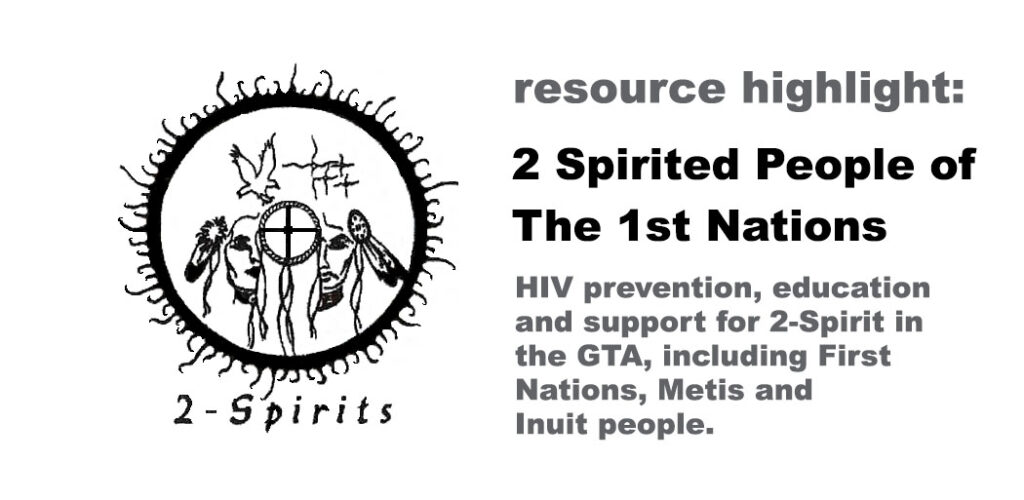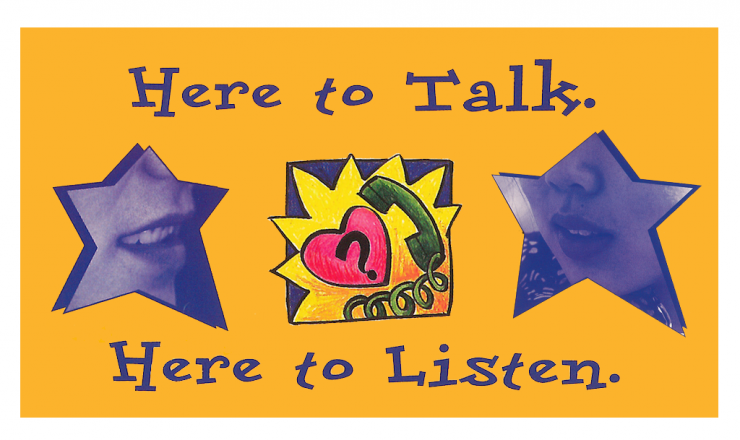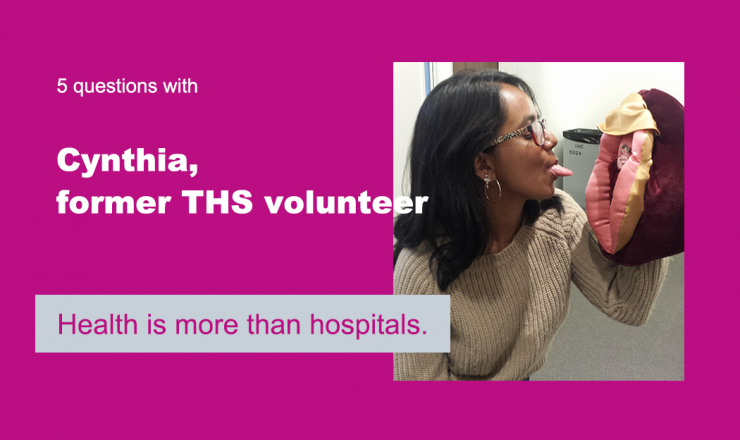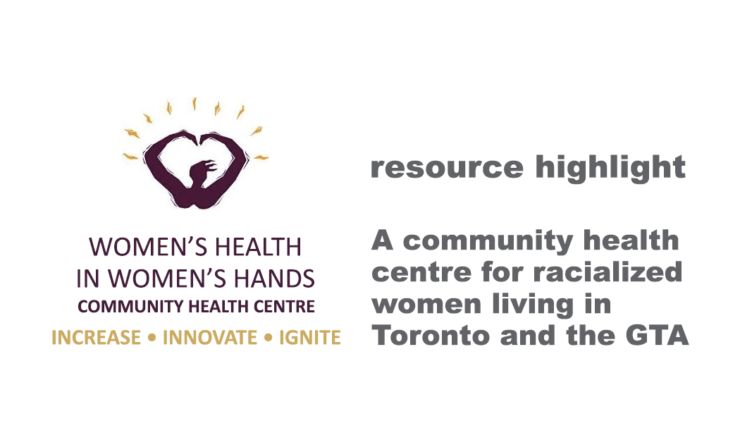

2 Spirited People of The 1st Nations provide prevention education and support for 2-Spirit, including First Nations, Metis and Inuit people living with or at risk for HIV and related co-infections in the Greater Toronto Area. Their work is based on indigenous philosophies of wholistic health and wellness.
In many Indigenous cultures and traditions, “Two-Spirited” referred to people who carried both male and female spirits. These individuals were looked upon as a third gender in many cases and in almost all cultures they were honoured and revered. Two-Spirited people were often the visionaries, the healers and the medicine people. They were respected as fundamental components of ancient culture and societies. European Colonization brought along with it a very strict male/female gender binary, and very narrow definitions of how all inhabitants were meant to live up to those roles.
Today, as stated on 2spirits.org, “Two-Spirited people are Native people who are gay, lesbian, bisexual, transgendered, other gendered, third/fourth gendered individuals that walk carefully between the worlds and between the genders. Unfortunately, due to many of the colonizing forces and experiences that Native people have gone through, the roles of Two-Spirit people have been lost in our consciousness and many Native people have adopted the homophobic attitudes that are present in today’s society. With the coming of the Seventh Generation, Two-Spirits are slowly relearning their traditional roles in Native Communities.”
2 Spirited People of The 1st Nations host a number of different Posi+ive Living Programs for 2-Spirited people in the GTA who are living with HIV, including food, transportation, hygiene, and technology supports. You can visit their Programming Page for more info on ceremonies, workshop, panels, and events.
2 Spirited People of The 1st Nations are located at 105 – 145 Front St. East, Toronto. You can contact them by:
If you have questions about this topic, feel free to contact one of our peer educators. [Link]
Last Updated: June 2021

Teen Health Source is proud to be marking 25 years of providing peer sexual health information to youth across the GTA!

Did you know that Teen Health Source has been around for 25 years! To help celebrate our 25th Anniversary, we’re checking in with some of our previous volunteers. Today we’re hearing from Cynthia!

Women’s Health In Women’s Hands (WHIWH) is a Community Health Centre for racialized women living in Toronto and the GTA!